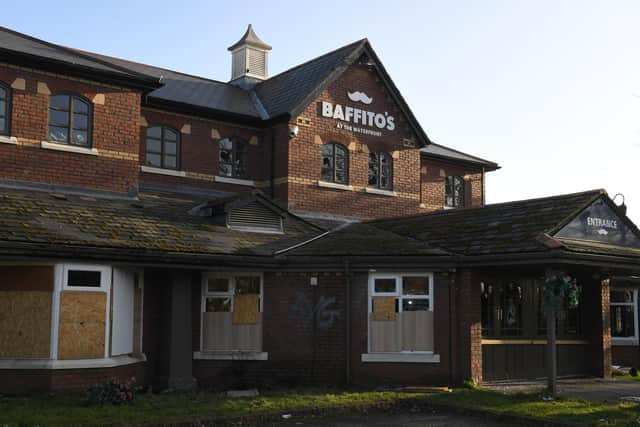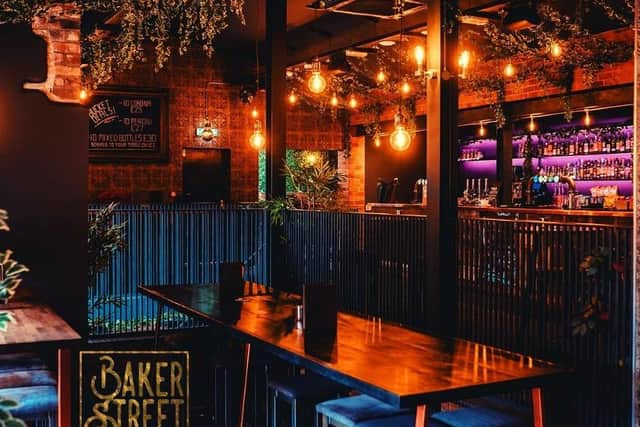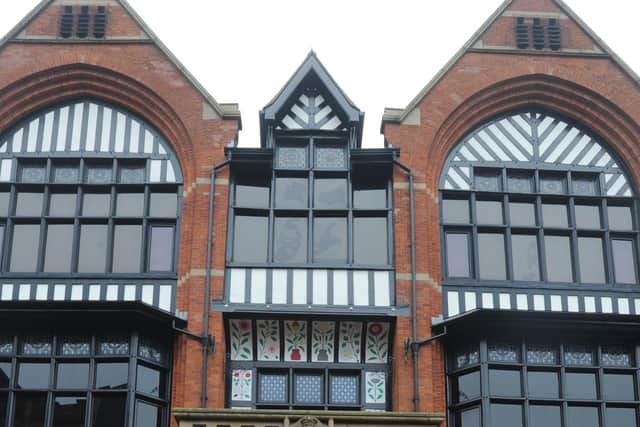The changing face of Preston's pub trade - what the figures really mean


According to the Office for National Statistics, pumps were pouring at around 80 public houses in the city in 2019 – the same number as in the previous year.
But while a period of holding steady against a decade of closures has been met with optimism, a note of caution has also been sounded.
Advertisement
Hide AdAdvertisement
Hide AdFor closer inspection reveals that although the numbers may be the same, the venues are not.


“It’s not as simple as the figures might suggest”, said Adrian Smith, vice chairman of the Central Lancashire branch of the Campaign for Real Ale (CAMRA).
“I don’t think we’re seeing a new wave of drinkers, it’s a re-ordering of what’s out there.”
In the past year, a handful of pubs across the city have called last orders for the final time, including Baffitos on the Docks, Fives in Guild Hall Street and the Withy Trees in Fulwood.
Advertisement
Hide AdAdvertisement
Hide Ad

Meanwhile, venues such as Baker Street in Avenham Street has met with success, and the rise of the micropub continues in and across the wider Preston area, with the likes of Gin Jar Ale and 1260 Craft and Crust opening in December in Penwortham, and Lostock Ale set to open today in Lostock Hall.
Mr Smith said: “In number terms, yes, things look like they’re stable and new outlets are opening, but the traditional street corner boozers are still closing.
“It’s the same pretty much everywhere, with village and country pubs that are food-driven doing well, and city centre pubs generally doing quite well because nightlife is focused on city centres. But it’s the pubs in suburbs that are really struggling.
Advertisement
Hide AdAdvertisement
Hide Ad“Back in the 70s when I first started drinking, there wasn’t much on TV, we didn’t have the internet or the music systems available now. So if you wanted to do something with your friends, you went to the pub.


“Supermarkets now also sell alcohol much cheaper than you can ever get it in pubs.”
Mr Smith said he also believes young people’s attitude towards drinking has changed, with Government warnings ringing in people’s ears, and initiatives such as Dry January gaining popularity.
He said: “People are not going into pubs in the same numbers.
Advertisement
Hide AdAdvertisement
Hide Ad“That’s the same everywhere, but Preston is also a university city, and a lot of the conventional, historic pubs have been bought up by the university. There is also a significant number of people in the city who don’t drink for religious reasons.
“And then there’s the problems of conventional pubs usually being big buildings designed for a different era that are expensive in terms of rent and rates. Utility bills are high, with things like big cellars to keep cool, and the expectation is that they are open from lunchtime till late at night.
“Micropubs are small units with minimal staff. Very often they get rate relief or very low rates, and they have smaller footprints. But the big thing is that they’re free of a tie, meaning they’re free to buy whatever products they want, from whoever they want, at a fair market price.
“So their overheads are lower, the price of their raw materials is lower, and they can make a better return.
Advertisement
Hide AdAdvertisement
Hide Ad“Because they’re smaller, it’s also much easier to create a vibrant atmosphere, and they’re interesting and forever changing.
“I think people are using pubs for something specific these days, for watching sport or for music. Twenty years ago, people just went to the pub.”
Ray McLaughlin is opening up his new micropub, Lostock Ale, in Hope Terrace, Lostock Hall, today (Friday).
He has previously worked as a gas engineer, doorman in Preston and was licensee of Barney’s Piano Bar in Church Street, Preston.
Advertisement
Hide AdAdvertisement
Hide AdHe said: “I think people’s attitude towards drinking has changed. Pubs were part of a working man’s culture, where you’d have vaults and snugs, and some places where women weren’t allowed. But times have changed.
“There’s a resurgence for the 30-somethings who have outgrown the tracksuit and nightclub scene. There is a big market for people who don’t want all the music and gaming machines and sports on TV.
“I’ve done a lot of research on micropubs before opening this place, and you look at seating arrangements and style, and when you’re in there, you can see how people overhear other people’s conversations and join in, and it’s great at bringing people together.
“We’re also able to be more flexible and personal than big chains. If someone comes to me with a deer’s head or a one-stringed violin to put on the wall, I can do, because it adds character and it tells a tale.”
Advertisement
Hide AdAdvertisement
Hide AdRay said the proximity of traditional pubs, the Pleasant Retreat and the Wishing Well, was not a problem for his business.
He said: “I’ve been in and spoken with them both, and we’re not looking at it as competition. We’re at different ends of the same stick. I’m serving what they’re not.
“And with the rail links to Lostock Hall, the restaurants and takeaways, there is no need to go into the centre of Preston for a night out.”
But Preston city centre is still a profitable place to be - if you get the offering right - according to Dave Holt, who opened Baker Street in Avenham Street in March with business partner Darren Cooper.
Advertisement
Hide AdAdvertisement
Hide AdDave said: “For the past 10 months it’s been a resounding success, better than we could have hoped for. In fact, it’s been so good that we’re looking at the possibility of opening another venue around the city centre.”
He added: “There is no city centre mentality during the week, we knew that, but at the weekend, the people of Preston will still come out, and when they do go out, they want somewhere nice.
“It can be a very unforgiving trade, but if you have an eye for detail, if you make people feel welcome, and you invest in your business, then people will return.
“We’ve reinvested money back into the business with new floors, changing the bar and specialist drinks machines. We’ve found people of all ages are enjoying it.”
Advertisement
Hide AdAdvertisement
Hide AdIn Preston, the number of pubs has dropped from 105 to 80- since 2007.
The introduction of the smoking ban in the same year, the impact of the Great Recession and a rise in alcohol duty in 2008 have all been blamed for landlords calling last orders.
Across the UK, there was a one per cent rise in the numbers of establishments last year to just over 39,000 - the first increase since 2007, when the figure stood at 51,000.
The number of small pubs – those with fewer than 10 employees – also rose for the first time since 2002.
Advertisement
Hide AdAdvertisement
Hide AdNational chairman of the Campaign for Real Ale Nik Antona “cautiously” welcomed the fact that pubs – especially smaller ones – appeared to be bouncing back after years of closures.
“Unfortunately pubs continue to close across the country, particularly in small or rural communities,” he said.
“This means the loss of the social, cultural and economic benefits that come with a well-run local.”
Camra is calling on the Government to review business rates and lower the tax rate on beer sold in pubs.
Advertisement
Hide AdAdvertisement
Hide AdMr Antona added: “We urge that these asks are reflected in the forthcoming Budget to help save the great British pub.”
The British Beer and Pub Association agreed, saying that “policy makers have a great opportunity in the March Budget to help pubs flourish”.
While the number of locals across the UK has dropped in the long-term, there are more employees working in pubs on average than a decade ago.
In 2007, the average pub in the UK employed five people. Now, the figure stands at eight.
Advertisement
Hide AdAdvertisement
Hide AdIn Preston, a similar trend has been seen, with the average pub employing 10 staff in 2019, up from five in 2007.
A Treasury spokesman said: “Small pubs and bars are part of the heart and soul of our communities – so it’s great news they are on the rise.
“We’re committed to giving them support, which is why we will be cutting their bills in half through the business rates retail discount plus further support with a new pubs relief.”